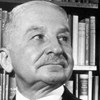The demand of the public for credit is a magnitude dependent on the banks’ readiness to lend, and banks which do not bother about their own solvency are in a position to expand circulation credit by lowering the rate of interest below the market. Lowering the rate of interest is tantamount to increasing the quantity of what is mistakenly considered as the fair and normal requirements of business.
Banknotes became fiduciary media within the operation of the unhampered market economy. Deposits subject to check are money-substitutes and, as far as their amount exceeds the reserve kept, [are] fiduciary media, and consequently no less a vehicle of credit expansion than are banknotes. The begetter of credit expansion was the banker, not the authority. But today credit expansion is exclusively a government practice. While the size of the credit expansion that private banks and bankers are able to engineer on an unhampered market is strictly limited, governments aim at the greatest possible amount of credit expansion. Credit expansion is the governments’ foremost tool in their struggle against the market economy. What is needed to prevent further credit expansion is to place the banking business under the general rules of commercial and civil laws compelling every individual and firm to fulfill all obligations in full compliance with the terms of the contract. Free banking is the only method for prevention of the dangers inherent in credit expansion. Only free banking would have rendered the market economy secure against crises and depressions. No government is willing today to give any thought to the program of free banking because no government wants to renounce what it considers a handy source of revenue. Those Americans who twice succeeded in doing away with a central bank were aware of the dangers of such institutions; it was too bad that they failed to see that the evils they fought were present in every kind of government interference with banking.
Banking
Tuesday, September 1, 1981
Republish
Republish This Article
This work is licensed under a Creative Commons Attribution 4.0 International License, except for material where copyright is reserved by a party other than FEE.
Please do not edit the piece, ensure that you attribute the author and mention that this article was originally published on FEE.org

